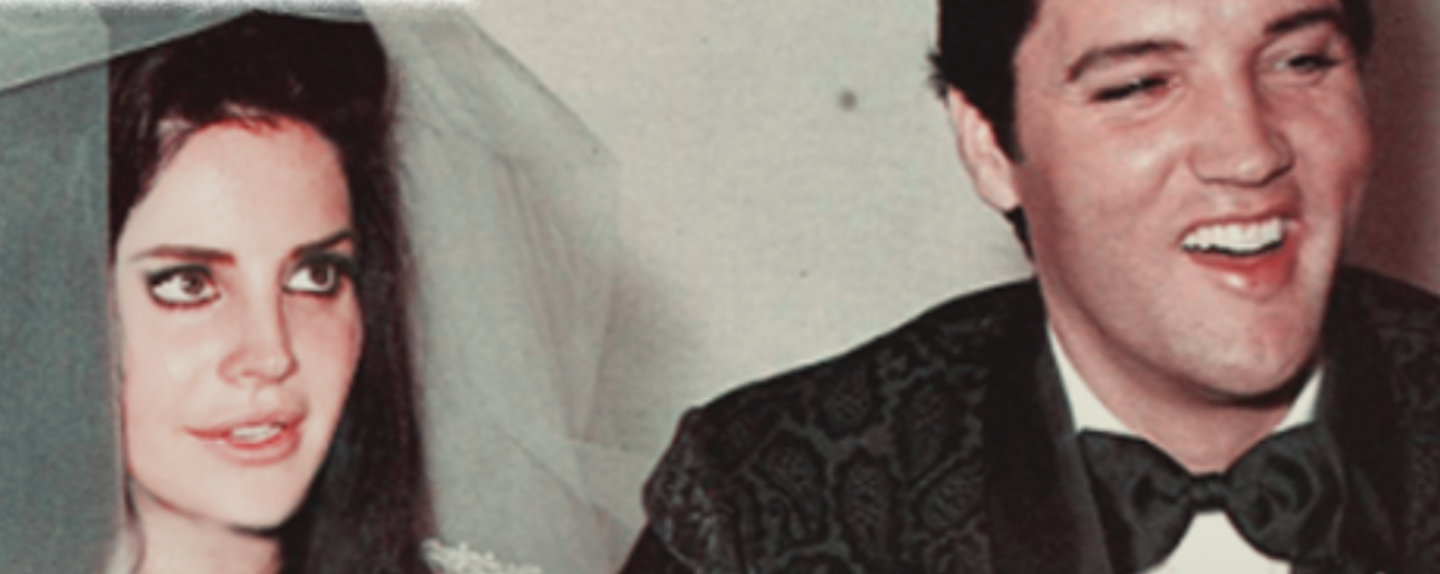For those non-fangirls and boys out there, word of Lana Del Rey offering a new “composition,” as she dubbed it in typical Del Rey fashion, to a documentary film called The King should be taken in stride. If it sounds slightly “garage-y,” it’s not necessarily intentional so much as a by-product of the fact that it’s from Del Rey’s embryonic days as a singer, around the time she uploaded “Elvis” and two other tracks, “Axl Rose Husband” and “Blue Ribbon,” to her MySpace in 2008 (maybe that’s why when she finally did hit the big time she felt inclined to [Lizzy] grant them an interview). But at twenty-three, one supposes, fate was not ready to bestow her with fame just yet.
In 2018, on the other hand, Del Rey can repurpose as many of her “lost tracks” as she wants to in her stead as a force to be reckoned with in the music industry. And maybe “Elvis” was always meant to find its way to documentary filmmaker Eugene Jarecki (best known for 2006’s Why We Fight), whose latest, The King, uses the allegory of Elvis’ fall from grace (specifically the Fat Elvis in Las Vegas period) as a metaphor for America at large (no pun intended). As the trailer quotes Owen Gleiberman of Variety, “We’re bloated, addicted, going through the motions, coasting on our legend. Elvis didn’t just lose his majesty, he lost his faith. And so, in many ways, have we.” Yes, it’s true and maybe Elvis is the most succinct way to personify the decay of former U.S. grandeur into the collective laughing stock of the world. Though not everyone seems to agree that this is the best metaphor.
Even so it seems, somehow, Del Rey does–despite all of her well-catalogued reverence for the pop culture icon. In that same aforementioned MySpace interview, Lana comments, “I have artists who have influenced me a lot, but I don’t think you would, like, naturally find them as comparisons to me.” Undoubtedly in that stable of stars is Elvis Presley, who one can easily envision Del Rey praying to as she wistfully wishes, “Elvis, where are you when I need you most?/White sequin jumpsuit ghost” as her younger, musician-aspiring self. That he weaved his way into one of her most iconic songs (and accompanying visuals in Tropico), “Body Electric,” is one of the primary zeniths of speaking to how he has birthed essentially every legend after him–hence, “Elvis is my daddy.”
Evoking all the retro glam imagery Del Rey has perfected over the years, mention of “chantilly lace catching” and “blue hydrangea[s]” (a phrase also wielded on “Old Money” from Ultraviolence), Del Rey paints a melancholy image of a girl so yearningly seeking solace from an entity that can never be conjured back to life (much like the American dream itself).
Just as Lana would become an icon to search for answers in to her current legion of fans, she commented in a 2014 Clash interview, “When I was studying philosophy my teacher told me that it’s okay to feel like the people you’re closest to aren’t alive anymore. Sometimes that is the best company to keep. It’s about the people that pondered the same questions as you did, and had the same sort of life mentality as you. I was upset and inspired by that premise. I knew then, really, that my closest friends would be people I have never really met before. I was different and I didn’t know many people who felt about mortality how I did. As a result, I do feel a personal connection with the icons: John Wayne, Elvis.”
To imagine Elvis watching over a young and unformed Lizzy Grant is almost believable when you hear her describe the girl in the song–that acrylic-sporting lounge singer who will never be heard–as “breathing Elvis lyrics,” and the vision of “champagne in the air/tipping back his head, relaxing/’thank you very much’ and I’m laughing”–perhaps having imagined he was there so hard that he finally got conjured for an evening of revelry.
Like the long lost bride of Elvis that she is, however, even Lana has had to betray him for the purposes of this specific film, treating him like the fallen idol he’s become as time goes on, just as she had to scale back her Americana-loving nature so omnipresent on Born to Die in favor of darker political undertones on Lust for Life. Because “if Elvis is your metaphor for America, we’re about to O.D.” A Lana Del Rey soundtrack isn’t a bad way to go though. Certainly better than being slumped over on a toilette before falling to the floor in all your bullfrog croaking lack of glory.
In any case, perhaps when a documentary about Axl Rose or PBR comes out, we can get a chance at having the other two demos remastered as well.



















